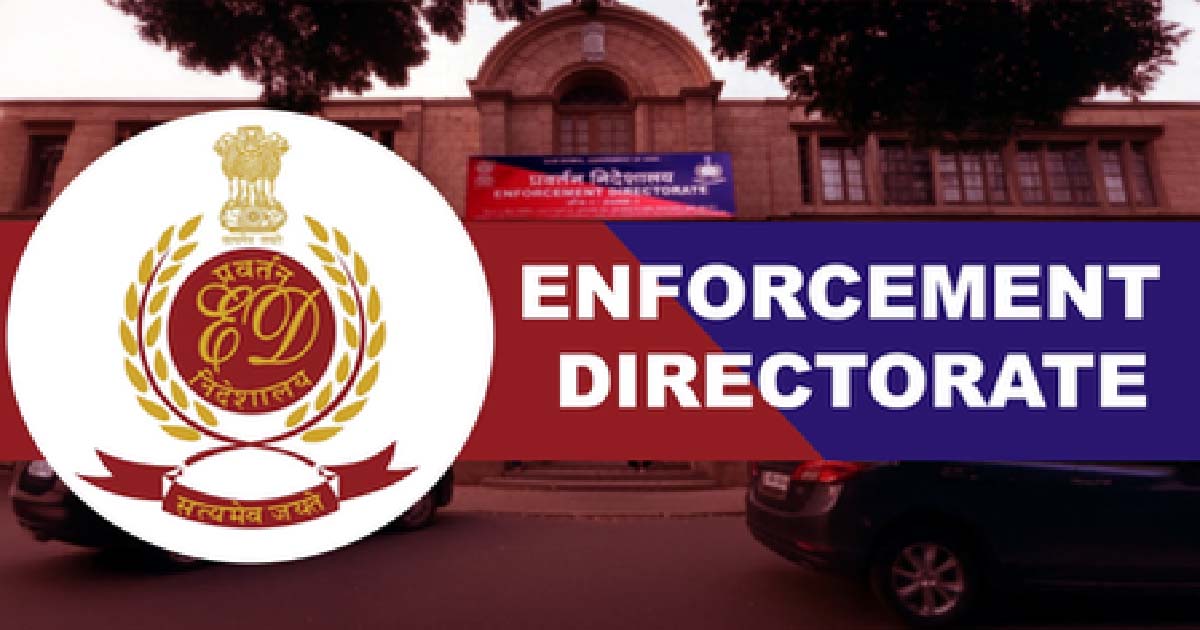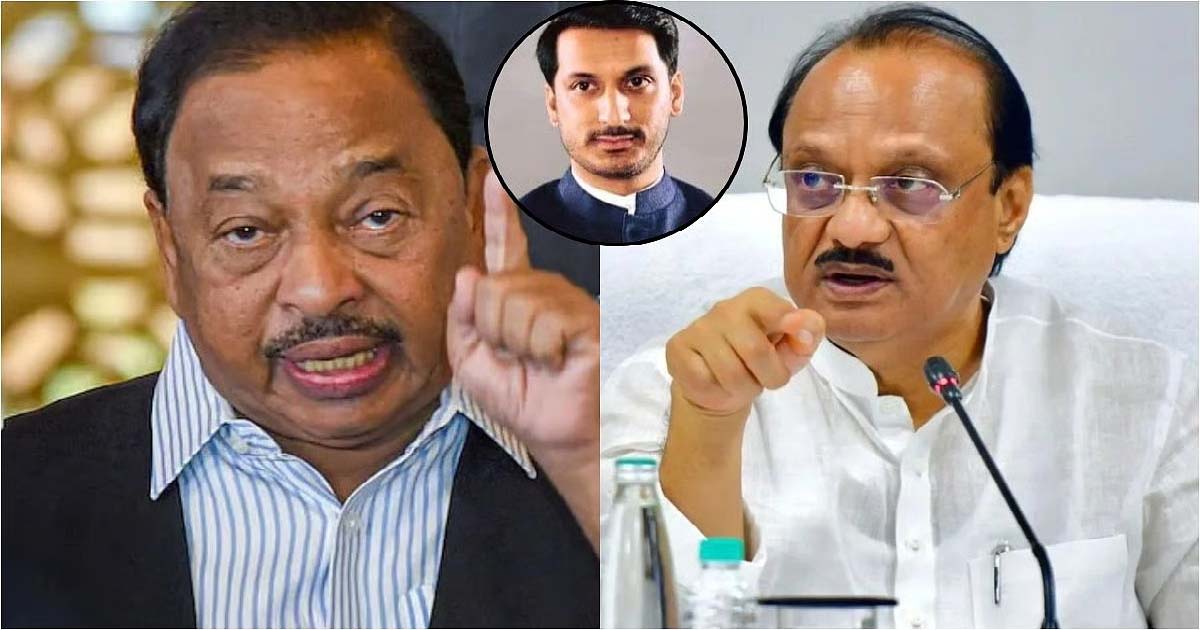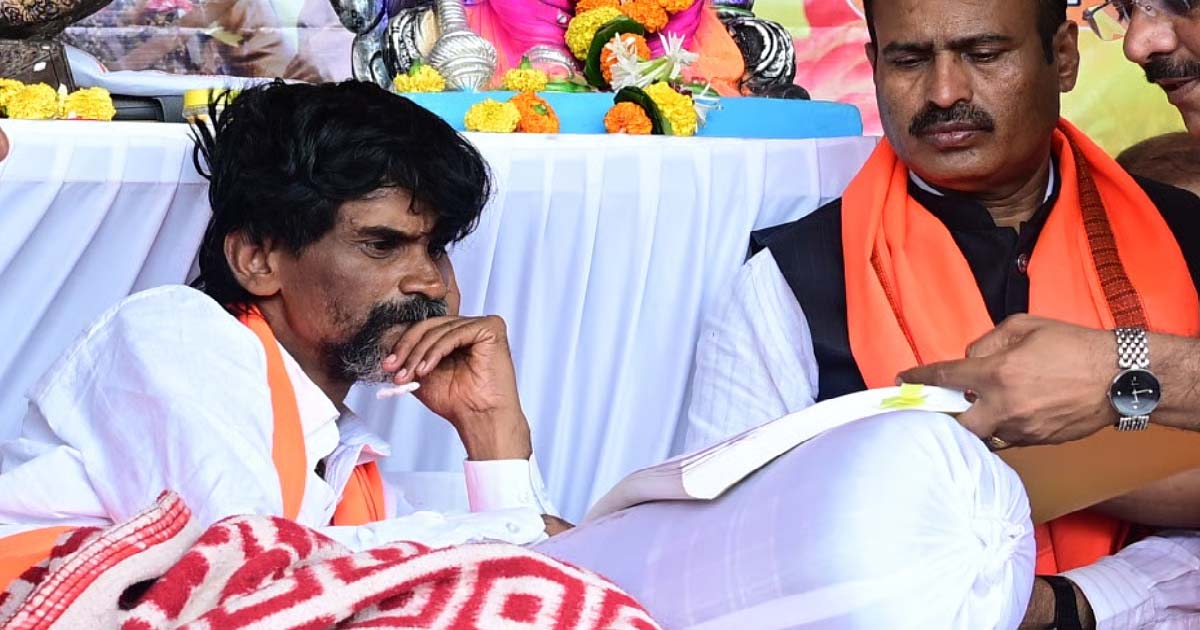National News
More trouble for Yediyurappa as IT raids on his close aide unearth Rs 750 cr
The sensational findings of the Income Tax Department during the recent raids in Bengaluru and other places on former Chief Minister B.S. Yediyurappa’s close aide B.R. Umesh and others is a setback for the BJP veteran, party sources said.
During the search and seizure, undisclosed income of about Rs 750 crore was found. Out of this, an amount of Rs 487 crore has been admitted by the respective group entities as their undisclosed income. The searches which started on October 7 have been carried out at 47 premises spread across 4 states.
Former Chief Minister H.D. Kumaraswamy has made serious allegations that the IT raids have been conducted on the close aides of Yediyurappa only with an intention of giving him a ‘checkmate’ and taming him.
“Yediyurappa and Opposition leader Siddaramaiah met in Mysuru to plan how to weaken BJP in Karnataka. Anyone with little common sense could sense why close aides of Yediyurappa and his son B.Y. Vijayendra have been targeted by the IT department. It is being done with an intention to put brakes on Yediyurappa by the BJP,” he charged.
“I do not have any hesitation in saying this. BJP wants to control Yediyurappa,” he underlined. However, the findings of the raids have given a serious turn to the events as an in-depth probe is expected to be conducted into the misappropriation now.
During the search, unaccounted cash of Rs 4.69 crore; unaccounted jewellery and bullion valued at Rs 8.67 crore; and silver articles valued at Rs 29.83 lakh have been seized.
The Income Tax Department carried out search and seizure operations in the case of three major contractors based out of Bengaluru, engaged in the execution of irrigation and highway projects including B.R. Umesh, the aide of Yediyurappa for three days from October 7.
Sources explained that there are all chances of money trail reaching Yediyurappa as the raids were focused on projects of Irrigation department under the Water Resources ministry involving implementation of various projects more than Rs 20,000 crore.
IT department further claimed that one of the groups has admitted to having indulged in inflating labour expenses amounting to Rs 382 crore. Further, another group has been found to have taken accommodation entries, from non-existing paper companies to the extent of Rs 105 crore, which has been admitted by this group.
These huge misappropriations would attract investigation by the Enforcement Directorate (ED) in future, according to sources. Yediyurappa, who has begun to assert himself after stepping down as the Chief Minister now will have no other way but to fall in line with the party diktats, sources add.
Yediyurappa, despite being asked to step down from the top post, continues to be a mass leader and has a good hold on BJP legislators. Sources explain that he is disappointed with the party’s decision to corner him by not allowing him to take up a state tour and by not allocating cabinet berth to his son B.Y. Vijayendra.
Yediyurappa has all the capacity to cause damage to the prospectus of the BJP party in Karnataka in next assembly elections. Since BJP high command wants his support to come back to power but at the same time, it does not want to be under his shadow. Sources say that, with the IT raids, the party wanted to achieve these aims and findings of IT raids made the job of the party easier.
Meanwhile, the IT sleuths have conducted raids on the ‘Design Box’ company office and a hotel room where company owner Naresh Arora is residing. The company manages the social media platforms of powerful politicians in Bengaluru and also into the branding of politicians. The raids continued till midnight on Tuesday. Earlier it was said that the company is owned by Congress President D.K. Shivakumar. However, Shivakumar has denied it.
Crime
ED probing shell firms linked to Bengal human trafficking racket

Kolkata, Nov 8: The Enforcement Directorate (ED) is examining bank accounts linked to a network of shell companies allegedly used to divert proceeds of crime generated through the multi-crore human trafficking racket operating in West Bengal.
The ED unearthed information about these shell companies following raid and search operations conducted on Friday at six locations across different parts of the state. During scrutiny, officials found that large sums were deposited into these accounts and withdrawn within hours, suggesting layering and diversion of illicit funds.
Sources said that through the ongoing examination of these accounts, the investigating officers are attempting to trace the ultimate beneficiaries of the racket.
Meanwhile, the ED issued a statement on Saturday confirming that during the raids, cash worth over Rs 1.01 crore, several digital devices, and property-related documents were seized.
“Several bank account details under the use and operation of the accused/suspect persons have been identified. Two high-end luxury vehicles, including a Land Rover Defender and a Jaguar, have also been frozen under the provisions of PMLA,” the agency stated.
According to the ED, the organised trafficking network operated primarily through bar-cum-restaurants and dance bars in West Bengal.
The central agency initiated its probe based on multiple FIRs registered by Kolkata Police and the West Bengal Police against the key operators of the human trafficking racket under various sections of the erstwhile Indian Penal Code and the Immoral Traffic (Prevention) Act. The ED subsequently registered an Enforcement Case Information Report (ECIR) under the Prevention of Money Laundering Act (PMLA).
Investigations have revealed that the accused exploited vulnerable women under false promises of employment, coercing them into prostitution, and generating substantial illegal proceeds in the process.
The accused identified so far include Jagjit Singh, Ajmal Siddiqui, Bishnu Mudra, and their associates, who allegedly played crucial roles in the financial and operational aspects of the racket.
National News
Maharashtra: ‘Children Can Grow Up But Must Be Obedient,’ Says BJP MP Narayan Rane On Ajit Pawar’s Pune Land Scam Reply

Mumbai, Nov 8: The controversial land deal linked to Deputy Chief Minister Ajit Pawar’s son, Parth, has given a new handle to the NCP stalwart’s traditional political rivals to target him over his response to allegations. The BJP, Shiv Sena, and NCP are constituents of the ruling Mahayuti alliance.
Responding to Ajit Pawar’s earlier remark that “when your children grow up, they do their own business,” BJP MP Narayan Rane on Saturday quipped, “Children can grow up, but they should be obedient. What more can I say about it?”.
Once a vocal critic of Ajit Pawar in the past, Rane refrained from making further comments on the issue.
Maharashtra minister and BJP leader Radhakrishna Vikhe Patil has said that Ajit Pawar’s “busy schedule” may have delayed his response to the controversy.
“If Ajit Pawar had acted when he first got wind of the Pune land issue, this situation might not have arisen. But considering his busy schedule, sometimes a few decisions happen automatically,” Vikhe Patil told reporters on Friday.
Vikhe Patil, a former Congressman, and the Pawars have been political rivals in western Maharashtra for decades.
The controversy pertains to the alleged illegal sale of 40 acres of government land in Pune’s Mundhwa area, reportedly worth around Rs 1,800 crore, which Opposition leaders claim was purchased by a company linked to Ajit Pawar’s son Parth for only Rs 300 crore with a stamp duty waiver.
While an FIR was registered on Thursday against three persons, including one of the partners in the company and a government official, for causing loss to the exchequer, Ajit Pawar denied any connection to the transaction.
He had heard of the matter a few months ago and made it clear that he would not tolerate any wrongdoing, he said.
National News
Mumbai Police Summons Maratha Activist Manoj Jarange-Patil & 5 Others

Mumbai: Mumbai Police on November 8 has summoned Maratha activist Manoj Jarange-Patil and five others to appear before the investigating officer at Azad Maidan Police Station on November 10.
The Maratha activist and five others have been called between 11 am and 1 pm on November 10.
The summons relate to violations during Jarange-Patil’s hunger strike at Azad Maidan, where police allege rules and Bombay High Court guidelines were breached.
-

 Crime3 years ago
Crime3 years agoClass 10 student jumps to death in Jaipur
-

 Maharashtra1 year ago
Maharashtra1 year agoMumbai Local Train Update: Central Railway’s New Timetable Comes Into Effect; Check Full List Of Revised Timings & Stations
-

 Maharashtra1 year ago
Maharashtra1 year agoMumbai To Go Toll-Free Tonight! Maharashtra Govt Announces Complete Toll Waiver For Light Motor Vehicles At All 5 Entry Points Of City
-

 Maharashtra1 year ago
Maharashtra1 year agoFalse photo of Imtiaz Jaleel’s rally, exposing the fooling conspiracy
-

 National News1 year ago
National News1 year agoMinistry of Railways rolls out Special Drive 4.0 with focus on digitisation, cleanliness, inclusiveness and grievance redressal
-

 Maharashtra12 months ago
Maharashtra12 months agoMaharashtra Elections 2024: Mumbai Metro & BEST Services Extended Till Midnight On Voting Day
-

 National News1 year ago
National News1 year agoJ&K: 4 Jawans Killed, 28 Injured After Bus Carrying BSF Personnel For Poll Duty Falls Into Gorge In Budgam; Terrifying Visuals Surface
-

 Crime1 year ago
Crime1 year agoBaba Siddique Murder: Mumbai Police Unable To Get Lawrence Bishnoi Custody Due To Home Ministry Order, Says Report












